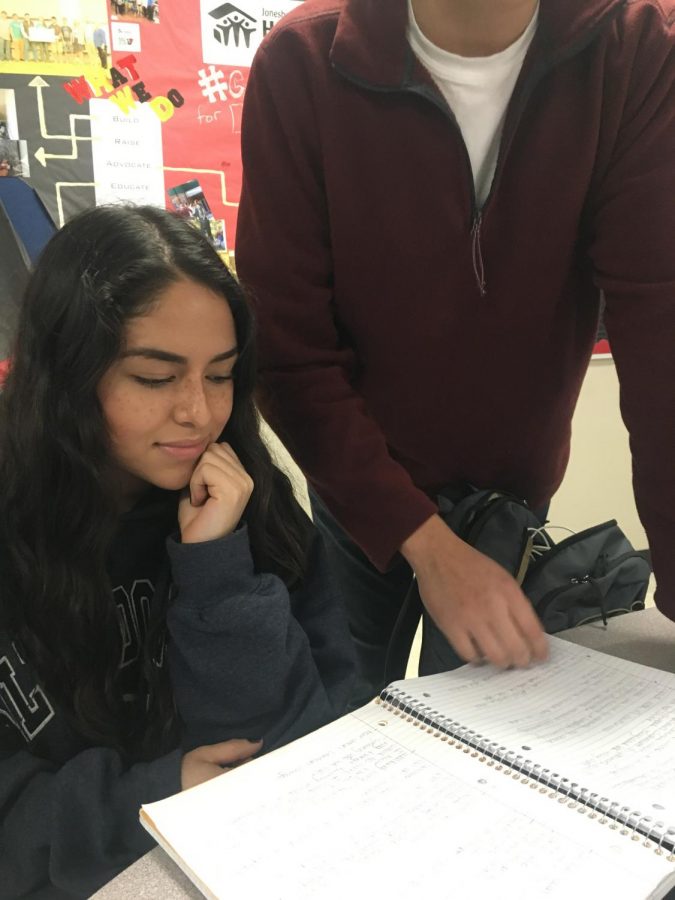Dreamers: DACA compounds school stress
Wendy Cazares studies with Javier Amperez on Monday in The Commons.
February 7, 2018
With Deferred Action for Childhood Arrivals (DACA) in a state of flux, Dreamers’ lives have an incredible level of stress.
DACA is an American immigration policy that allows minors who were brought to this country illegally to not face deportation.
But over the past year, DACA has been a source of controversy and faces possible iridacation.
In September 2017, President Donald Trump announced his intent to phase out DACA.
The 800,000 people, known as Dreamers, protected by the program are facing the possibility of deportation.
The uncertainty surrounding the legislation has many worried.
Ronda Watts, a counselor at Jonesboro High School, said, “While I have not had anyone come to me personally, I can’t imagine in their homes that they are not distracted by it. … Any time that proposed legislation is impacting something personal to you, it’s definitely going to color your world.”
With the attention on DACA it can be a source of distraction or stress for some students.
Wendy Cazares, a Jonesboro High School student protected by DACA said the legislation doesn’t impact her every day, but when it does it affects important things in her life.
“I’m not necessarily ‘distracted’ by the DACA debate. If anything, it helps them to know that it is an important discussion, and at least people are talking about it,” Cazares said. “The main thing would be for teachers to just try and understand the students who are affected by this.”
Watts said Dreamer students cannot receive in-state tuition and cannot apply for many scholarships.
“The process for citizenship should be easier so it is more attainable to all,” Watts said. “There should be a process everyone has to go through, but it should be understandable and easily obtainable.”
Citizenship isn’t a requirement to be a student at Jonesboro High School, and “every service that is available to our students is available to any students,” Watts said.
“You can qualify for free and reduced lunch, and some scholarships don’t require citizenship,” Watts said.
